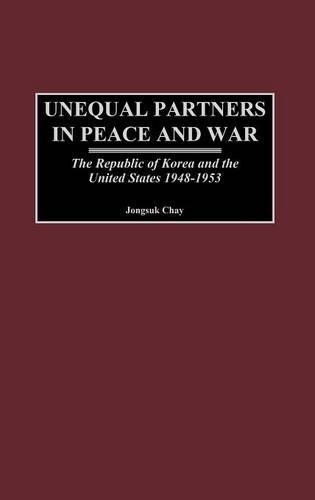
Unequal Partners in Peace and War: The Republic of Korea and the United States, 1948-1953
(Hardback)
Publishing Details
Unequal Partners in Peace and War: The Republic of Korea and the United States, 1948-1953
By (Author) Jongsuk Chay
Bloomsbury Publishing PLC
Praeger Publishers Inc
30th March 2002
United States
Classifications
Tertiary Education
Non Fiction
History of the Americas
Asian history
327.519507309044
Physical Properties
Hardback
336
Description
The United States and the Republic of Korea have managed to forge a strong working relationship both in wartime and in peacetime, despite an inequality in power between them, through fulfillment of their respective responsibilities. Chay explores how Korean and American actions and inaction affected relations between the two and within the international context of the Korean War. He focuses on how and why war might have been avoided or resolved differently as a result of poor choices and missed opportunities. Using Korean sources, as well as Chinese and Russian materials, this study provides valuable new insights into the relationship between these two unequal powers. The course of the Korean War swung like a pendulum powered by two outside interventions: that of the United States, made largely due to the symbolic value of Korea; and that of China, an action taken mainly for security reasons. Chay identifies key actions, including the division of Korea along the 38th Parallel, the 1949 troop withdrawal, and the failure to build an adequate military and economic deterrent in the South, as events that, had they not occurred, might have influenced the final outcome of the conflict. Restraint on the part of the United States and China and the role of the Korean peninsula as a geographic buffer zone ultimately prevented either side from gaining control of the entire peninsula, resulting in a stalemate. While issues of relative strength and weakness hindered U.S.-Korean cooperation after the end of the Second World War, once war came to the region the two powers built a successful partnership that addressed the national interests of both parties.
Reviews
Upper-division undergraduates and above.-Choice
Upper-division undergraduates and above.Choice
"Upper-division undergraduates and above."-Choice
Author Bio
JONGSUK CHAY is Professor of History Emeritus at the University of North Carolina, Pembroke.
